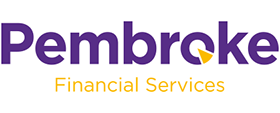At the March 2015 Budget, the government set out the vision for a transformed tax system and the end of the tax return.
The vision set out is about much more than simply adding digital tools to the current system: it is about transforming the UK tax system into something that feels completely different.
By 2020, HMRC will have moved to a fully digital tax system. The transformed tax system of 2020 has four foundations:
- Tax simplification – Taxpayers should not need to provide HMRC with information that it already holds or can obtain from elsewhere; for example, from employers or banks and building societies. It will be possible for taxpayers to see the information that HMRC holds through their digital tax accounts which they will be able to check and correct at any time.
- Information will be in one place – By 2020, taxpayers will be able to see their tax information in one place similar to that of online banking. This means they will be able to offset an overpayment on one tax against an under payment of another – thus it will feel like they just have one overall tax bill.
- Making tax digital for businesses – Business won’t have to wait until the end of the tax year (or longer) before knowing how much tax they need to pay. From April 2018, business (including those who let out property) will update HMRC on a quarterly basis where it is their main source of income or a secondary source of income above £10,000.
- Making tax digital for individuals – By April 2016, every individual or small business will have access to a digital tax account which presents a personalised picture of their tax affairs and one that enables them to interact with HMRC digitally.
In a nutshell, businesses and individual taxpayers will be able to register, file, pay and update their information at any time of the day or night and at any point in the year, to suit them. For the vast majority, there will be no need to fill in an annual tax return.
More details on HMRC’s vision, together with a discussion paper and illustrative case studies, can be found on the GOV.UK web site. The government said it is committed to reducing burdens for taxpayers, so building a transparent and accessible tax system fit for the digital age achieves just that.
Two questions spring to mind; what about tax agents and what if someone is not on-line?
The Government say that authorised agents will be able to manage their clients’ digital tax accounts and people who don’t use the internet will be offered alternatives, like nominating someone else to update their information for them, or giving information by phone.
For expert tax advice please get in touch.
















